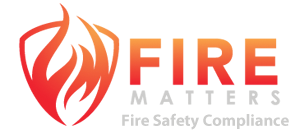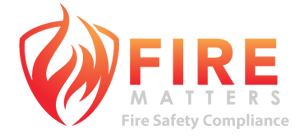Why Do Some Body Corporates Try to Manage Fire Safety Compliance Themselves—Despite the Risks?
When it comes to fire safety, the stakes are incredibly high. For body corporates, ensuring compliance with Queensland’s strict fire safety laws isn’t just a matter of ticking boxes—it can be the difference between life and death in an emergency. It’s also a legal obligation, with serious consequences for non-compliance, including hefty fines and potential jail time for individuals responsible.
So why, then, do some body corporates attempt to manage fire safety compliance on their own, rather than engage a qualified fire professional for third-party certification?
Let’s unpack the reasoning—and the risks.
The Appeal of DIY Compliance
- Cost Concerns
Perhaps the most common reason is financial. Body corporates often operate under tight budgets, and hiring a fire safety consultant, especially for ongoing audits or certifications, is seen as an extra expense. There’s a temptation to rely on in-house knowledge, past reports, or even contractors not licensed to certify compliance.
But what seems like a cost-saving measure can quickly become a liability. Without formal audits and accurate documentation, the body corporate risks overlooking critical deficiencies that may only be discovered during a crisis—or a compliance inspection.
- False Confidence in Routine Maintenance
Some assume that having a fire maintenance contractor perform regular servicing of extinguishers or alarms is “enough.” While routine maintenance is vital, it doesn’t replace the need for a holistic compliance check, including the review of evacuation plans, occupant instruction, system certifications, and statutory reporting requirements.
Without a third-party audit, there’s no independent verification that all the legal requirements under the Building Fire Safety Regulation 2008 are being met.
- Lack of Awareness
Many committee members of body corporates are volunteers, not safety professionals. It’s common for there to be confusion about where their responsibilities start and end. Some may not even realise that failing to maintain fire compliance documentation or carry out annual occupier statements can result in criminal liability.
This is where education and clear guidance can make a big difference.
What’s Really at Stake?
Under Queensland law, failure to meet fire safety compliance can result in:
- Fines of thousands of dollars per breach
- Personal liability for committee members or building managers
- Criminal charges and possible jail time in the event of serious injury or death
- Increased insurance premiums—or denied claims following an incident
- Legal exposure from residents or tenants impacted by non-compliance
All of this can happen even if there was no intent to cut corners—just a misunderstanding or a failure to keep up with evolving compliance standards.
Why Third-Party Certification Matters
Hiring an independent, qualified fire safety professional to conduct audits or certify compliance isn’t just best practice—it’s often the only way to confidently demonstrate that all requirements are being met.
A third-party expert:
- Brings deep knowledge of the legislation and standards
- Can identify compliance gaps before they become legal problems
- Provides documentation and certification that stands up to scrutiny
- Offers peace of mind to the committee, residents, and insurers
It shifts the burden of risk away from volunteers and ensures that safety isn’t left to assumption or guesswork.
Conclusion: A Safer, Smarter Path Forward
Fire safety compliance is not an area where shortcuts pay off. Body corporates need to view engaging a qualified fire professional not as an optional extra, but as essential risk management.
When lives, property, and legal responsibility are on the line, relying on in-house guesswork or unqualified contractors is a gamble that simply isn’t worth taking.
If you’re part of a body corporate committee, ask yourself: Can we truly say we’re compliant, or are we hoping for the best? If it’s the latter, it might be time to bring in a professional—and protect everyone involved.

